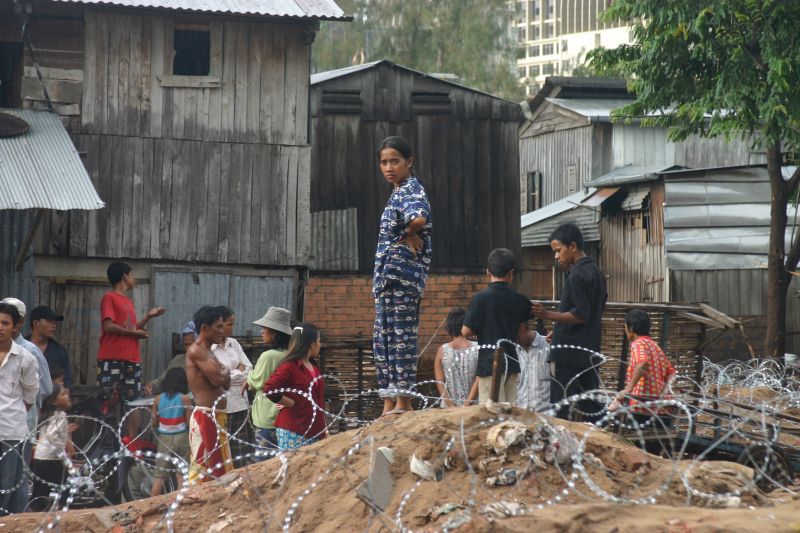Urban development
Once there was a lake

In the past, the lake served recreational purposes. Today, many local restaurants are no longer viable. Fishermen relied on the lake too.
Since 2007, thousands of families have been forced to leave their homes around the former lake. Amnesty International has called this development Cambodia’s “largest forced eviction since the Khmer Rouge era”. It has been reported that a leading member of the ruling party is among the owners of the lease-holding company.
“There is no trust between villagers at Boeung Kak Lake and the government,” says Vann Sophat of the non-governmental Cambodian Center for Human Rights (CCHR). The local people are frustrated because the government is not offering any solution.
Police officers with riot shields, helmets and electric batons have quashed protests several times. Boeung Kak activists, including many women, have been sentenced to jail terms.
Vann Sophat says that this conflict is particularly difficult to resolve because it is linked to politics. That is not always the case, according to him, but the legal situation is often very complicated nonetheless.
Boeung Kak is not the only land conflict in the city of Phnom Penh. In 2009, for example, some 150 families were evicted from Dey Krahorm, and their homes were destroyed. The land they had been living on was leased to a private construction company. Compensations were not paid.








